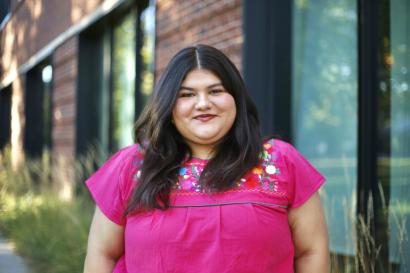I had a sore throat in Meknes on the last day of the orientation week. I felt better after drinking some hot water. As I was packing my luggage, my host mom called me for lunch. I went back to the dining room, only to see some fried chicken legs with vegetables. I told me host mom in French, “The fried chicken is too hot. I can’t eat it when I’m having a sore throat.” My host mom immediately answered, “Well just wait a bit and it’ll be cold.” I realized we were not on the same page at all, but did not know how to explain.
In Chinese culture, we believe that certain foods are hot and certain foods are cold. It has nothing to do with the temperature of the food; it refers to the inherent characteristics of the foods. For example, fries are hot; refrigerated fries are still hot. There is no hard rules to tell what food is hot and what food is cold. As a kid, I simply learned this concept and the characteristics of different foods from my parents, who always tell me not to overeat one thing because it is hot for my body.
Similarly, our bodies can also be hot and cold; while being cold is generally good for one’s body, being too cold is not healthy either. When one is constipated, especially with some blood in their stools, or has a sore throat, coughs up yellow, sticky mucus, or/and has yellow, sticky snivels, it means that their body is too hot. When one coughs up white mucus or/and has white snivels, it means their body is too cold. A cold cough and a hot cough require totally different treatments.
The concept of hot and cold is used to decide what food to eat. While it’s generally better for your body to eat cold food, you can eat a little hot food every day or less often if you eat enough cold food and do not have any “hot symptoms”. However, when hot symptoms do occur, one should try to eat as much cold food as possible, and avoid hot food for as long as the “hot symptoms” persist.
With this explanation in mind, which is probably non-sense to you, you’ll probably have a better idea of why eating healthy in Morocco has been a struggle for me. Healthy food isn’t as readily accessible as back at home in China or in New Orleans where I could always cook for myself. For breakfast with my host family, each person gets a piece of mlewi, a Moroccan “pancake” made of flour, butter, (a lot of) oil, and eaten mostly with jam and/or cheese. We have coffee and milk too, and can have however much bread we want. My host family packs me lunch every day, and they either pack me a lot of fried food, or salad with a lot of oil. These are not really cold food, but when I’m not sick, it’s not that big of a deal. I know it’s not as healthy, but I eat fruits and drink a lot of water to keep my body cold.
This semester, unfortunately, I get sick a lot more often, from minor colds or fevers to somewhat severe diarrheas. When I had a diarrhea, I had to ask my host mom to specifically cook me some rice because other foods will very likely to be too heavy for my stomach. She tried to make rice taste better for me, so she usually cooked rice porridge with different vegetables and a bit salt. Sometimes she randomly (in my opinion) added some garlics, probably wanting it to taste better; it tasted really weird to me. There were so many times when I felt I had to go to a Chinese restaurant in Rabat in order to have healthy and yummy food. I remember that when I was sick at home in China, my mom always pan fried vegetables and meat with very little oil and they tasted awesome. When I cooked for myself, I pan fried green unions and garlics with very little oil, cooked vegetables with light soy sauce and cooking alcohol. I felt so healthy with enough consumption of vegetables and meat cooked in a “cold” way every day. It’s been a bit of a struggle here in Rabat to eat healthy, but I’m excited to go home very soon!

Chen Yu
<p>Speaking fluent Mandarin Chinese, English, and conversational Czech, Yu Chen is currently looking to perfect his French during his upcoming semester abroad in Rabat. Passionate about revealing social and structural inequalities around the world through film and media, Yu Chen is pursuing a bachelor’s degree in Gender & Sexuality Studies and Digital Media Production.</p><p>Previously, Yu Chen has studied environmental issues in Okinawa, conducted research on social practice art in Puerto Rico, exchanged at the Film & TV School of Academy of Performing Arts in Prague, and tasted 44-year-old homemade Serbian Rakija in Belgrade.</p>






